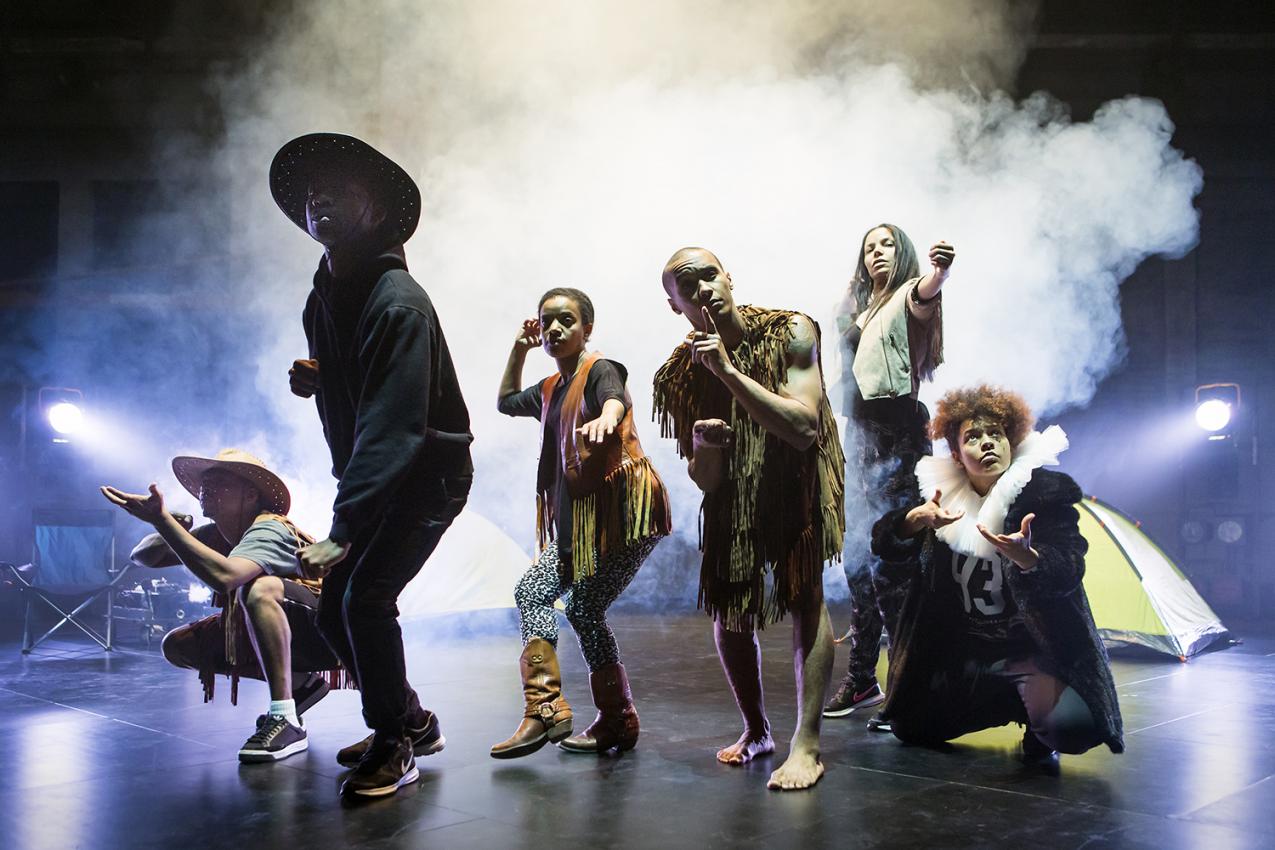NOBLE SAVAGE
Bærum Kulturhus
23. October - Kl 19.00
NOBLE SAVAGE deals with colonialized bodies, racialized identity and narratives, exclusion, inequality, shame, race, power structures and representation of the other through the questions:. How is otherness represented and exotified and who gets to tell whose story?
The story of Pocahontas is the dramaturgical framework. The story continues to claim that she went voluntarily to England, where she was introduced to the nobility, dressed like them and given a Christian name. Pocahontas died before her 20th birthday in Europe.
Her story has been popularized, with the lucrative Disney version from 1995 as the best known and widely criticized for its historical inaccuracy and for presenting offensive and damaging stereotypes of Native Americans. It tells a romanticised story where the 13-year old Algonquian Pocahontas instead of being kidnapped and raped by the settlers falls in love with their leader, disregarding the themes of the exploitation and racism of the British settlers.
The Noble Savage is authentic, bestial, uneducated, naked, licentious, sweaty, dirty, shaking, sexual, colored, racialized… She is more authentic but also beneath. She is the opposite of the good, pure and chaste taught by the Christian faith. In the mass media, diversity and exotic has been harnessed for commercial purposes:
”It is this current trend in producing colorful ethnicity for the white consumer appetite that makes it possible for blackness to be commodified in unprecedented ways.. Just as white cultural imperialism informed and affirmed the adventurous journeys of colonizing whites into the countries and cultures of ”dark others”, it allows white audiences to applaud representations of black culture, if they are satisfied with the images and habits of being represented”
bell hooks, Black Looks
In collaboration with Bærum Kulturhus, supported by FINNO



